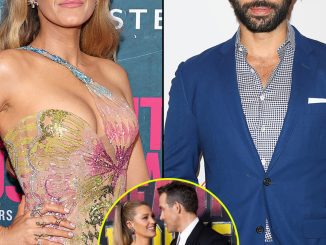Tyler Perry vs. Pastor Gino Jennings: A Debate on Faith, Art, and Culture
Tyler Perry, one of Hollywood’s most influential creators, has found great success through his portrayal of the beloved character “Madea.” Known for her bold, no-nonsense attitude, Madea has brought joy and laughter to millions.
However, Perry’s decision to dress as a woman for the role has sparked controversy, particularly within faith-based communities. One of his most outspoken critics is Pastor Gino Jennings, who condemns Perry’s work as morally and spiritually harmful.

Pastor Jennings argues that Perry’s crossdressing to portray Madea violates biblical principles. He believes the role trivializes God’s ordained roles for men and women, labeling it an “abomination.”
Jennings has publicly criticized not only Perry but also other entertainers and pastors who support Perry, accusing them of compromising their faith for fame and wealth. For Jennings, the entertainment industry reflects a moral decay where artists are willing to forsake righteousness for financial gain.
Similarly, comedian Katt Williams has voiced concerns about Perry’s Madea character. Williams suggests that Perry’s portrayal perpetuates negative stereotypes about Black women.
He believes Madea’s exaggerated mannerisms and loud personality reduce the richness and diversity of Black womanhood to a caricature. Williams argues that this portrayal reinforces outdated racial and gender clichés rather than elevating or empowering Black women.
Despite the criticism, Perry defends his artistic choices. He views Madea as a powerful tool for storytelling, humor, and connection. Perry insists that Madea is simply a character—a “uniform” he puts on for work, not a reflection of his personal identity.

He argues that Madea’s stories bring comfort, joy, and empowerment to audiences, especially within the Black community. Perry sees value in using humor to address serious topics like family struggles, resilience, and faith.
Beyond Madea, Perry’s contributions to the entertainment industry are significant. His establishment of Tyler Perry Studios in Atlanta marked a historic moment, making him the first African American to fully own a major film studio.
Perry’s partnership with networks like BET and OWN has expanded opportunities for Black artists, allowing for greater representation and diverse storytelling.
While Pastor Jennings and Katt Williams focus on the perceived spiritual and cultural harm of Perry’s work, Perry highlights the broader impact of his success.
He believes his platform has created pathways for others, uplifting voices that might otherwise go unheard. For Perry, Madea represents not just a character but a symbol of perseverance and creativity in the face of societal barriers.
The debate surrounding Perry’s work raises important questions about the intersection of faith, art, and cultural representation. It reflects larger conversations about the role of entertainers in shaping societal norms and the responsibility they carry.
Whether viewed as harmful or transformative, Tyler Perry’s Madea continues to spark dialogue on identity, community, and artistic freedom.


